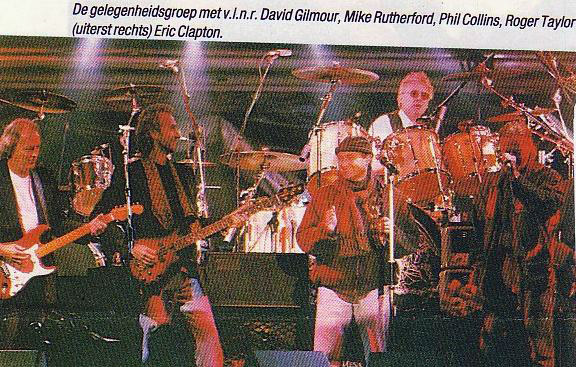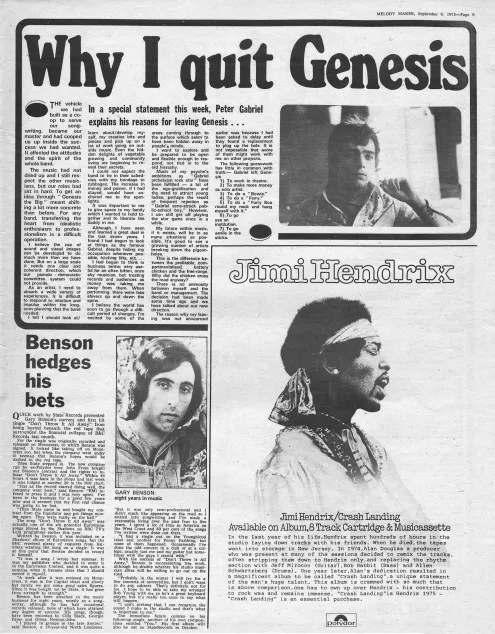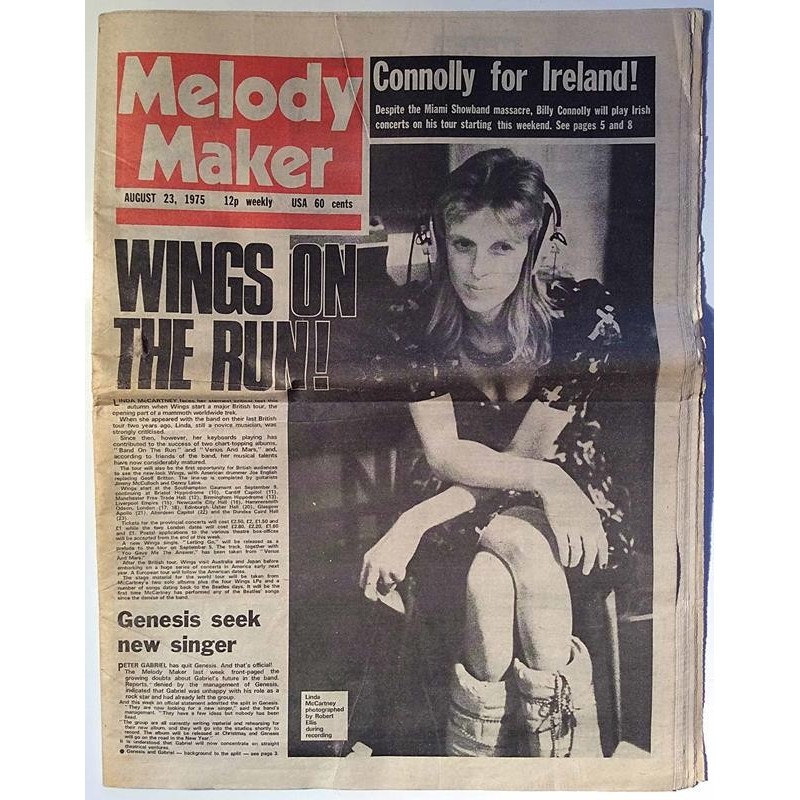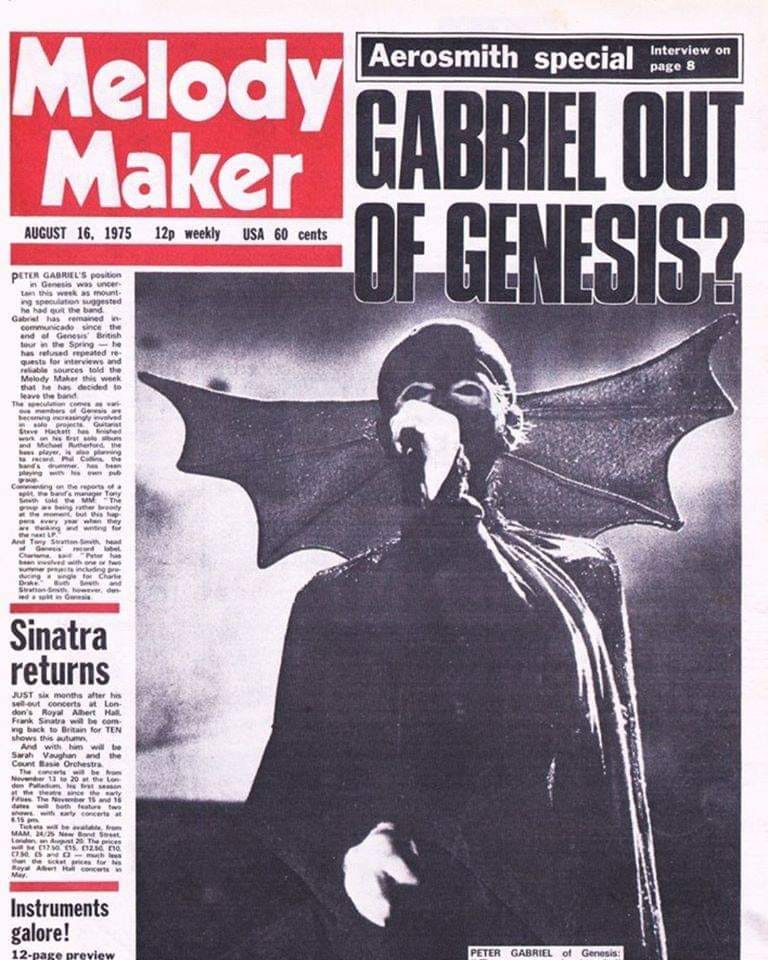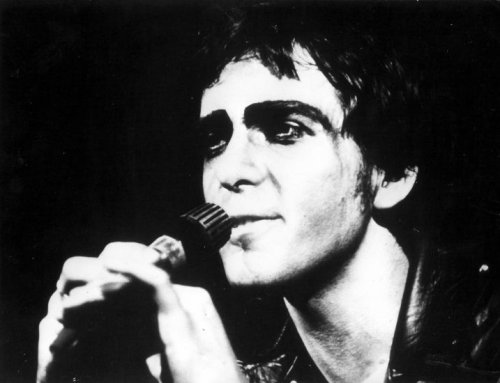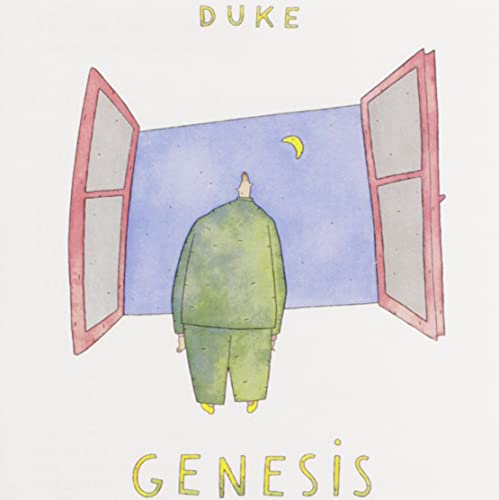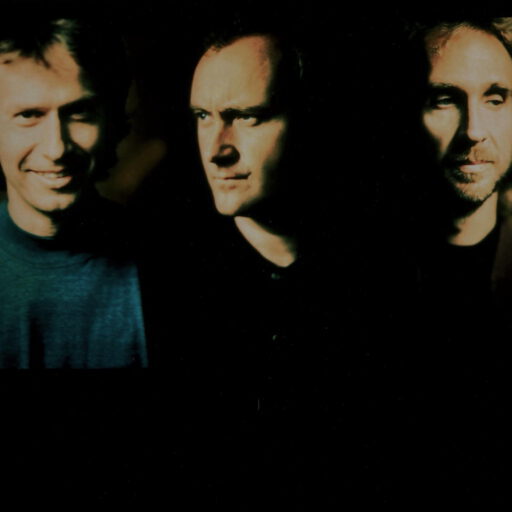On 18 September 1993, Genesis gave what would turn out to be Phil Collins’ final live performance with the band: an understated charity concert at the historic Cowdray Ruins in Sussex.
Genesis in 1993
1993 was a relatively quiet year for Genesis. Following their massive We Can’t Dance tour in 1992, the members returned to their solo projects. For Phil Collins, it was a turbulent time. His marriage to his second wife, Jill, was breaking down under heavy tabloid scrutiny, and he poured much of that emotion into his solo album Both Sides. Dark, angry, and intensely personal, the album divided critics, something that weighed heavily on him.
Against this backdrop, Genesis regrouped briefly for a one-off charity concert at Cowdray Ruins. The show raised funds for the King Edward VII Hospice and featured an extraordinary lineup, including Pink Floyd and the surviving members of Queen.
A unique Genesis lineup
That night, Genesis appeared without their regular touring partners Chester Thompson and Daryl Stuermer. Instead, the drums were handled by Roger Taylor (Queen) and Gary Wallis (Mike + The Mechanics), while Tim Renwick (Pink Floyd, Mike + The Mechanics) filled in on guitar and bass.
Genesis performed a short set including “Turn It On Again,” “Hold On My Heart,” “I Can’t Dance,” and a “Tonight, Tonight, Tonight / Invisible Touch” medley. Some sources claim they also played Collins’ solo track “That’s Just the Way It Is,” though this remains doubtful.
Next, Pink Floyd took the stage, with Paul Young (Mike + The Mechanics) providing vocals on some numbers and Mike Rutherford stepping in on bass. Eric Clapton also performed a short set with Mike on bass, before the night ended with the “All Star Cowdray Ruins Band,” featuring nearly everyone involved, running through “Ain’t That Peculiar,” “Can I Get a Witness,” and “Gimme Some Lovin’.”
Low-quality recordings of the event survive on YouTube, but unfortunately no professional release exists, something of a shame, given its historical importance.
Phil’s reflections
Although successful, the concert was modest in scale. Few realized it marked the end of Collins’ 18-year run fronting Genesis. For Phil, the show highlighted his growing distance from the band:
“In the middle of my writing and making BOTH SIDES, Genesis did a concert with Queen. […] But I didn’t enjoy it … As I was singing these songs, it didn’t feel natural. Obviously, it was bad timing, going just like that from doing my most personal thing to a Genesis thing and back. But it definitely felt like ‘What am I doing here?’, like shoes that don’t fit anymore.“1
Though he wouldn’t announce his departure until 1996, the seeds had been sown that evening.
The Cowdray Ruins line-up (as listed in the program):
- Tony Banks – Genesis (keyboards)
- Eric Clapton – guitar
- Phil Collins – Genesis (vocals)
- John Deacon – Queen (bass)
- David Gilmour – Pink Floyd (guitar)
- Adrian Lee – Mike + The Mechanics (keyboards)
- Nick Mason – Pink Floyd (drums)
- Tim Renwick – Mike + The Mechanics / Pink Floyd (bass, guitar)
- Mike Rutherford – Genesis (guitar, bass)
- Roger Taylor – Queen (vocals, drums)
- Garry Wallis – drums
- Richard Wright – Pink Floyd (keyboards)
- Paul Young – Mike + The Mechanics (vocals)
Phil’s departure was still a few years away from being official. But looking back, Cowdray Ruins was the true closing chapter of his time with Genesis.
Sources
Hewitt, Alan (2000): Opening The Musical Box. London: Firefly Publishing.
Platts, Robin (2007): Genesis. Behind the lines, 1967-2007. Burlington, Ont., Canada: Collectors Guide Pub.
Thompson, Dave (2005): Turn it on again. Peter Gabriel, Phil Collins & Genesis. San Francisco: Backbeat Books.
- in Platts 2007: 140 ↩︎

